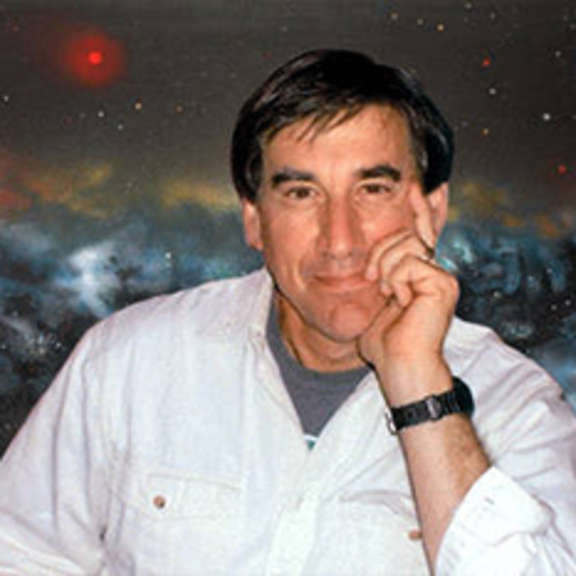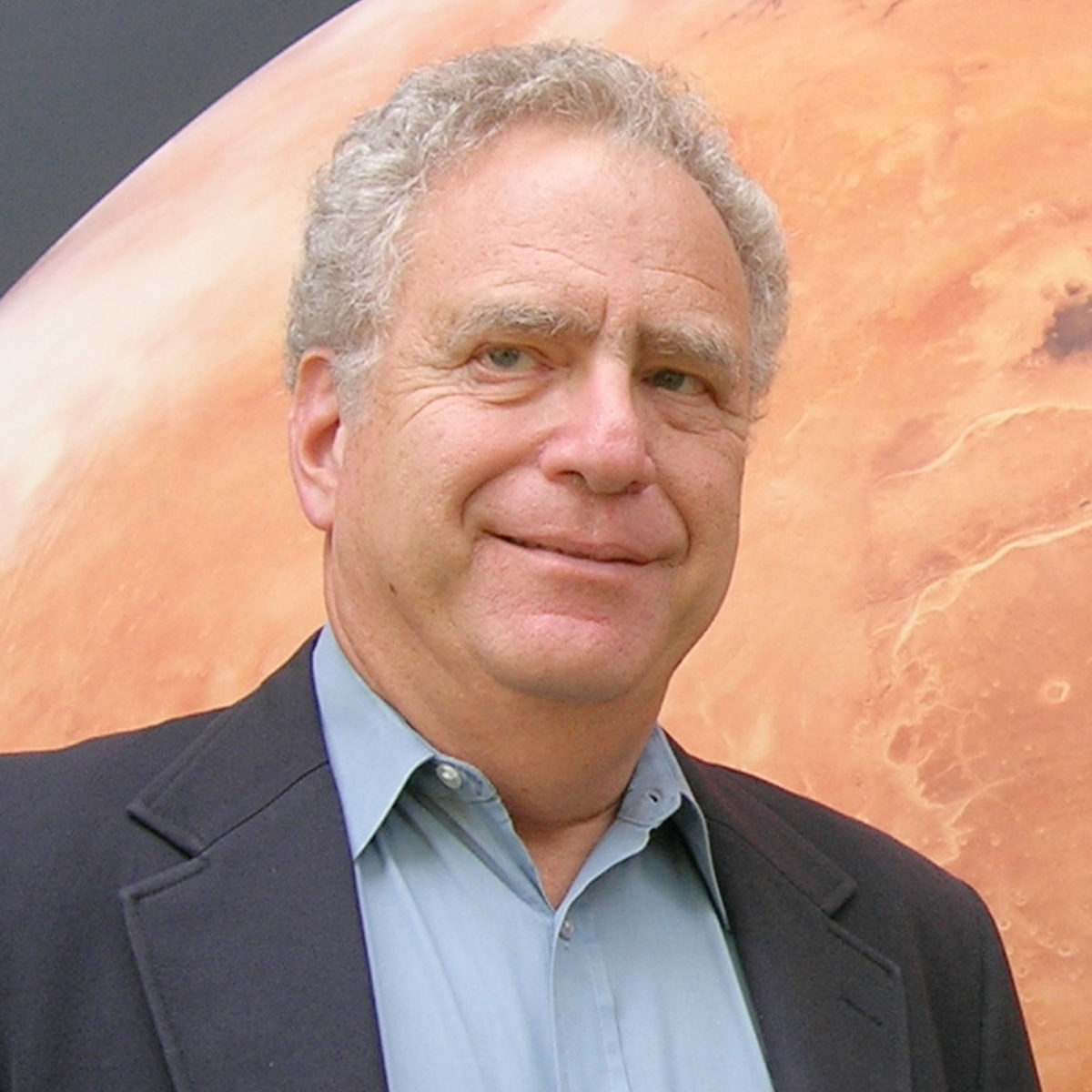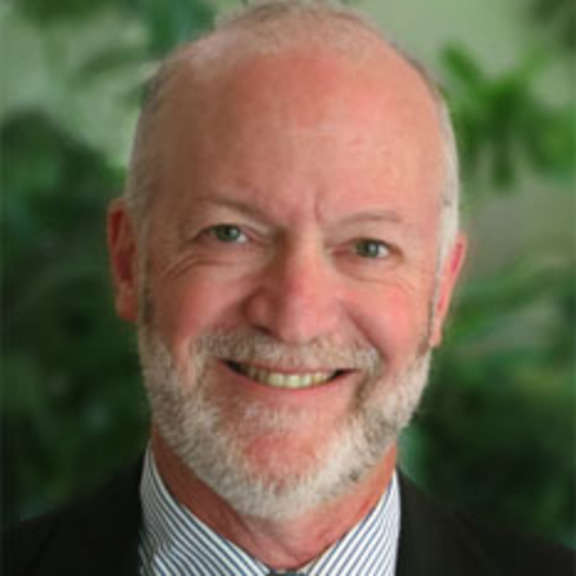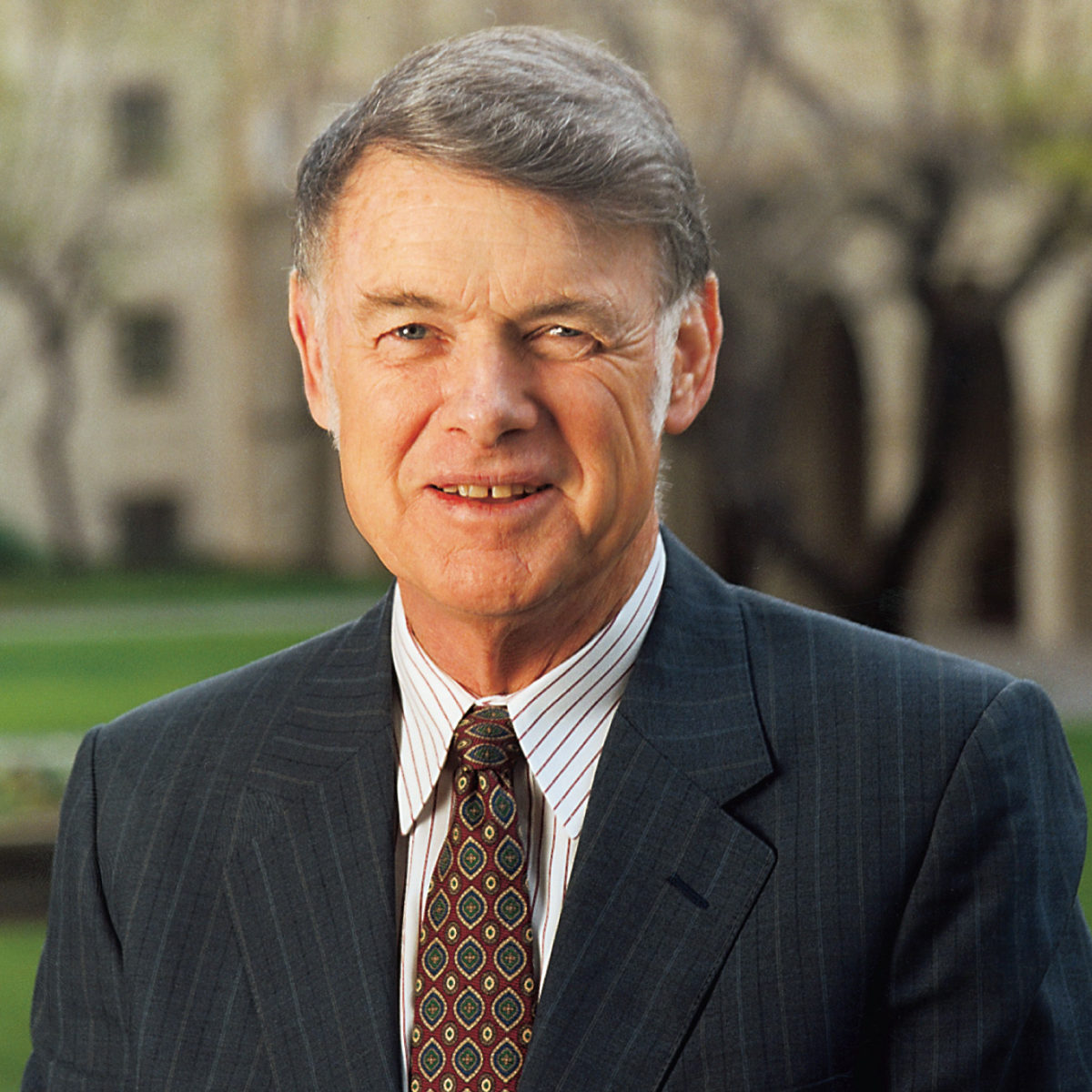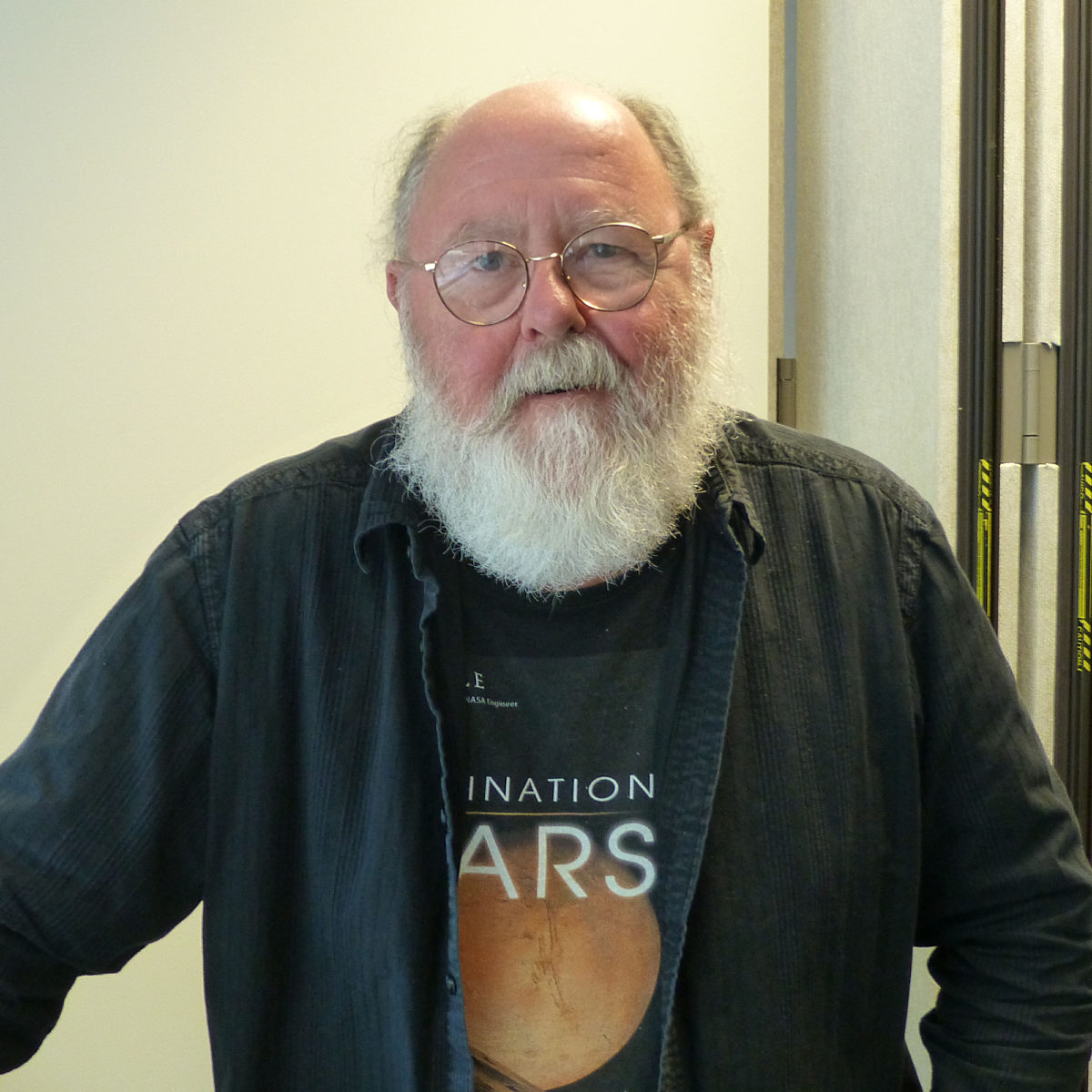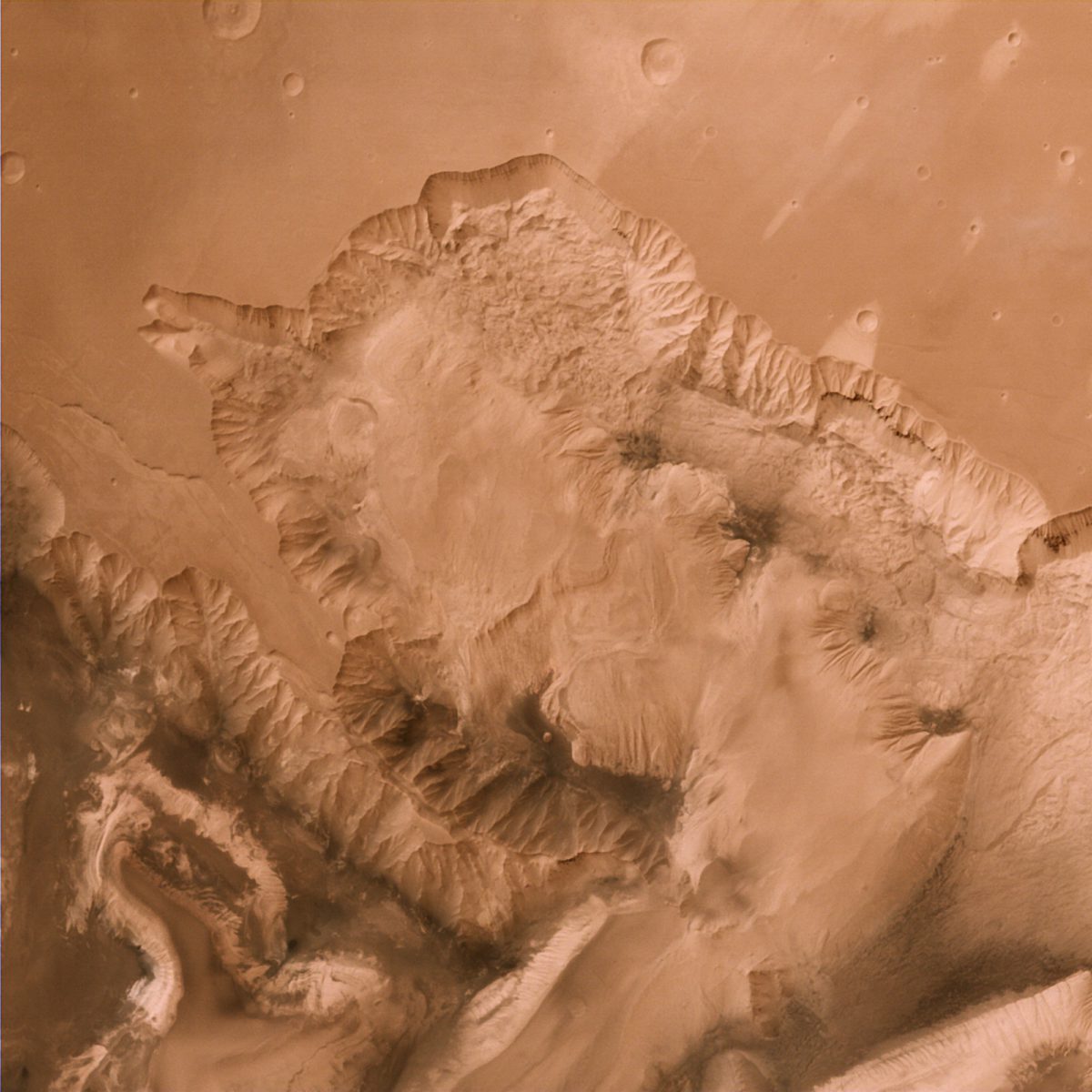Since 2002, Planetary Radio has visited with a scientist, engineer, project manager, advocate, or writer who provides a unique perspective on the quest for knowledge about our Solar System and beyond. The full show archive is available for free.
Search Planetary Radio
Carl Sagan’s longtime artistic collaborator, Jon Lomberg, designed the cover for the Voyager Interstellar Record. Now he wants to upload another message from Earth to New Horizons, the spacecraft on its way to Pluto.
“Starship Century—Toward the Grandest Horizon” is the new collection of fact and fiction assembled by Gregory and James Benford. The brothers are among the leaders of a renaissance in research and thinking about interstellar travel. They have returned to Planetary Radio to talk about this story of human destiny among the stars.
Only days after Voyager 1 reached interstellar space, forward thinkers met in Houston, Texas to consider how humans can become a starfaring species. Planetary Society Emeritus Executive Director Lou Friedman reports from the meeting.
The Mars Atmosphere and Volatile Evolution Mission (MAVEN) orbiter leaves for the red planet in November of 2013. Bruce Jakosky of the University of Colorado Boulder is its Principal Investigator. Mat Kaplan sat down with Bruce at a recent MAVEN workshop.
Planetary Radio returned to the Crawford Family Forum for live coverage of the LADEE launch on September 6th.
The passing of Planetary Society co-founder and former JPL Director Bruce Murray has been marked around the world. Planetary Radio takes its turn with this special tribute.
Leonard David has been writing about space exploration for more than five decades. Now he has turned his attention to China’s ambitious plans.
Two missions are coming together in a high bay clean room at the Jet Propulsion Laboratory. SMAP and ISS RapidScat went on display for a visit by NASA Administrator Charles Bolden. Mat Kaplan and Emily Lakdawalla provide special coverage.
They might be happy if one in ten of the projects they fund makes it in the real world…because that project just might change the world. We talk with Jay Falker, Program Executive for the NASA Innovative Advanced Concepts Program about 12 crazy and not so crazy ideas that have just received early seed funding.
When she was learning to forecast the weather in Hawaii, Brown University grad student Kat Scanlon didn’t suspect it would help her uncover evidence for rain or, more likely, snow that helped shape the surface of Mars billions of years ago.
If you’re willing to accept the premise, the thrilling new independent feature film presents one of the most scientifically and technically accurate tales ever put on screen. We’ll talk with the director and producer, and then ask science advisor Kevin Hand for a reality check.
Hundreds came out on the JPL mall on Friday, July 19th to salute the Cassini spacecraft as it captured a rare image of Earth from the outer solar system. Among them were the mission Deputy Project Scientist, Scott Edgington, and the Cassini Program Manager, Earl Maize.
On this special vacation edition of the show, we climb to the Mount Wilson Observatory to join a special tour for the descendants of the facility’s fascinating founder, George Ellery Hale.
There’s a place to go when you find a space rock headed our way, or headed any which way. Tim Spahr directs the Minor Planet Center, the global clearinghouse for all information about asteroids, comets and other relatively small bodies like moons.
Amanda Hendrix looks for and studies water in our solar system, where it has been found in surprising locales. Earth's moon, for instance. She talks about Luna’s ice and the weathering of its ancient surface.
Join us at the intersection of science, nature, music and wonder for a very special Planetary Radio Live with the great Peter Mayer. Bill Nye is with host Mat Kaplan on stage in this unique episode, the longest we've ever presented. You'll hear eight of Pete's beautiful songs, including one that will be on his new CD.
Join us at JPL for a conversation with Mars landing site selection leader Matt Golombek. Matt is also now Project Scientist for the Mars Exploration Rover program, and shares the great news from Opportunity about its latest discovery. Emily Lakdawalla presents a guest blog entry that features splendid images from Mars Express, while Bill Nye traces the convoluted ways of space science funding in Washington. Bruce Betts and Mat Kaplan are at a legendary Pasadena eatery for this week’s What’s Up. Cosmic hot dog, anyone?
A Planetary Radio double header includes a visit with CosmoQuest’s Pamela Gay. She and colleagues are working to replace vital federal funds for science education and citizen science programs. We also go to the dark side with David Carnahan of NanoLab, developer of carbon nanotubes that may help us discover Earth-like planets.
There will soon be one thousand confirmed exoplanets, but how do we learn more about such distant worlds? We talk to the leader of a team that has recently developed technology capable of revealing the spectra of these planets, which allows us to tease apart their composition. Emily Lakdawalla invites you to find the next “face” on Mars, while Bill Nye says another asteroid flyby is good news. Our special What’s Up space trivia contest prize will put your picture in orbit!
PlanRad Live takes to the road again, this time visiting the Space Tech Expo in Long Beach, California for a conversation with enthusiastic team members at Xcor Aerospace, where they are building the Lynx spaceplane, and the Zero Gravity Corporation, whose “G-Force One” plane has allowed thousands of men and women to experience weightlessness. Bill Nye joined the fun on stage, and Bruce Betts arrived with t-shirts for the winners of the live What’s Up space trivia contest.


 Explore Worlds
Explore Worlds Find Life
Find Life Defend Earth
Defend Earth


